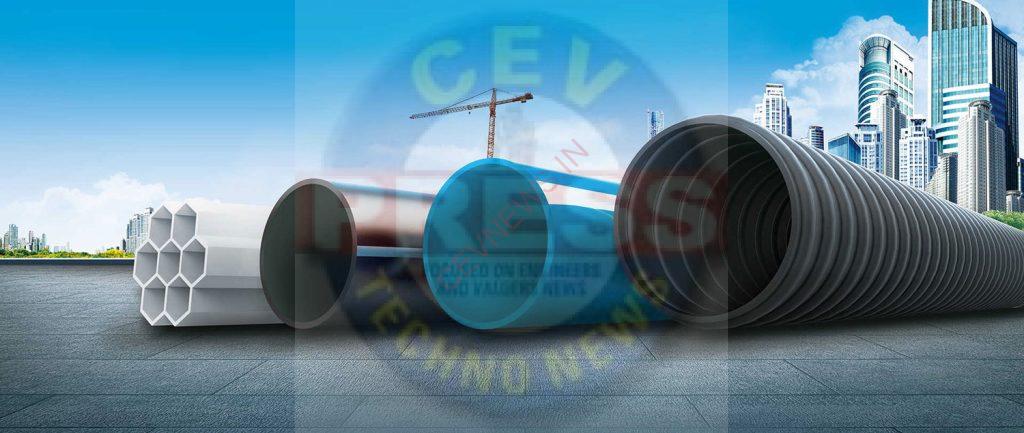ALL YOU NEED TO KNOW ABOUT SEWER PIPES AND ITS TYPES
The pipes are used for transporting water or wastewater from the home or the industrial area outside, which is called sewer pipes. We have to provide special care to the sewer pipe because it can be broken or corrosion by the wastewater.
The sewer pipes do many works at your home; it is only one pipe that can easily transport all the wastes water from inside to your house to outside. The sewer pipes help to underneath the main road of your locality.
The sewer pipes are laying a few feet under the soil, which also provides a good clear space for the home and industrial owner. The different types of sewer pipes are used depending on the weather of the locality, and that also repair or replace or upgrade depending on the time.
The sewer pipes are made out of many types of material, which is used; depending on the weather of the locality where the pipes are used. The material that is also used for making out the sewer pipes is, PVC and ABS plastic, another is a mixture of wood and fibres, cast iron, clay, etc.
Types of Sewer Pipes
There are having many types of sewer pipes in the construction markets, which are below.
1. Plastic Sewer Pipes
Plastic sewer pipes are inexpensive and durable, preventing the intrusion of roots from causing sewer blockage. There are two types of plastic pipes- PVC and ABS pipes.
PVC pipes are lighter than concrete or metal and white or gray in color. ABS is generally black and stronger than PVC pipes.
PVC pipes are installed without the use of heavy equipment. They are available in different shapes. PVC pipes possess high resistance to corrosion and chemicals, making them highly durable.
ABS is a strong, rigid pipe that works underground and in extremely cold temperatures. It has a BPA coating on it to make it more durable.
Both pipes have a smooth interior, allowing excellent solid waste matter carrying capacity.
2. Cast-Iron Sewer Pipes
Cast-iron pipes are very commonly seen in old sewer lines. One of the main benefits of cast-iron sewer pipes is that they possess excellent internal strength during high pressures and are non-flammable.
For example, a 4-inch diameter cast-iron pipe can safely withstand a pressure of 350 psi. In contrast, this pressure can result in the breakage of ABS, PVC, or clay pipes. This is the reason cast-iron sewer pipes are still in application.
Cast-iron sewer pipes are not a common choice as they are heavy, difficult to handle, and require special cutting and installation tools.
Cast iron pipes are not protected externally, which makes them prone to corrosion. They are also subjected to manufacturing defects, like varied pipe thickness.
3. Clay Sewer Pipes
Clay sewer pipes have been used for centuries as they are organic, environmentally friendly, and unaffected by the acids present in the wastewater. As it is inert, there is no chance of chemical degradation.
Vitrified clay sewer or stoneware sewers is still used today and is not considered a do-it-yourself project as the unit is heavy and tricky to cut.
Due to the porous surface of clay sewer pipes, tress roots may impinge on them, causing the pipe to crack. Once a crack is formed, the roots infiltrate the pipe.
4. Copper Sewer Pipes
Copper pipes are the most expensive ones, but they are non-toxic and non-corrosive, with a life span of 50 to 70 years. They are lighter than iron, making their handling, cutting, connections, and installations easy and cheap.
Copper pipes can sustain heat without compromising compressive strength and are highly durable. Copper is a recyclable and environmentally friendly material for sewer pipelines.
5. Orangeburg Sewer Pipes
Orangeburg is a bituminized fiber pipe made from a mixture of hot pitch and wood pulp. It was popular from 1946 to 1976 because of its lightweight and easy-to-cut properties. It couldn’t guarantee a life span of more than 50 years and is only seen for homes built before the 1980s.
If you own a property or buy a new one with Orangeburg sewer pipes, it is recommended to fully check the efficiency of the sewer line or go for a complete replacement. Existing Orangeburg sewer pipes are usually replaced by PVC or ABS pipes.

